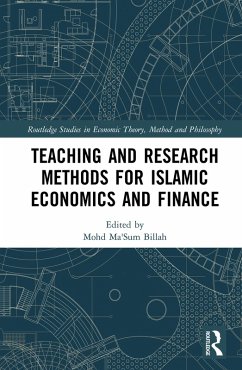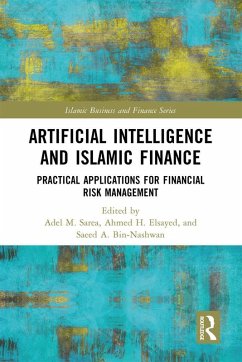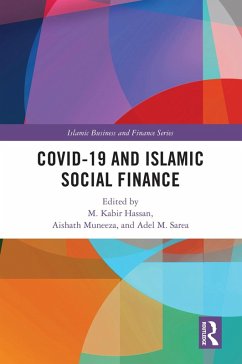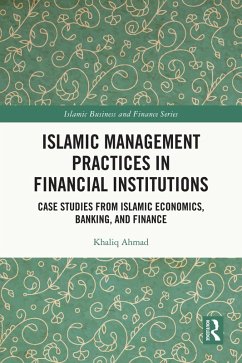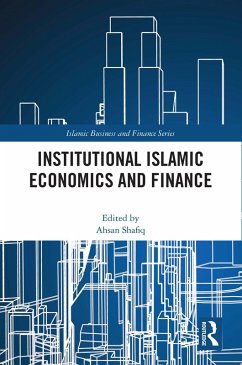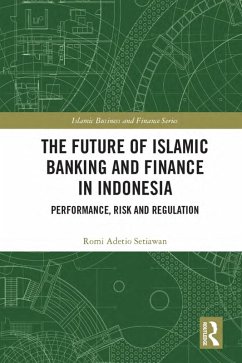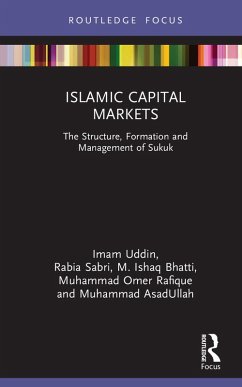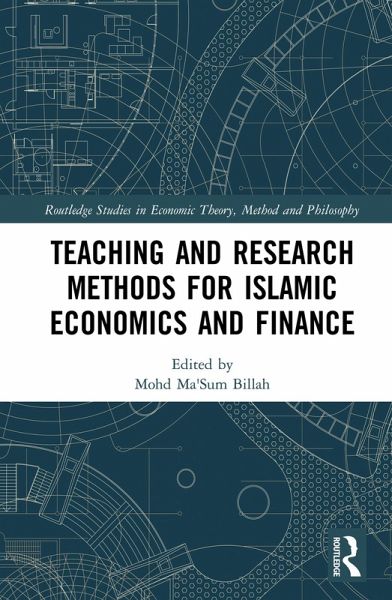
Teaching and Research Methods for Islamic Economics and Finance (eBook, ePUB)
Versandkostenfrei!
Sofort per Download lieferbar
41,95 €
inkl. MwSt.
Weitere Ausgaben:

PAYBACK Punkte
21 °P sammeln!
Methods and techniques adopted in teaching, training, learning, research, professional development, or capacity building are generally standardized across most traditional disciplines, particularly within developing countries. This is not the case, however, when it comes to the Islamic disciplines, and, in particular, in relation to the study of Islamic economics and finance, which is influenced by conventional standards and techniques. This is primarily due to the lack of availability of the requisite standards and mechanisms designed within the spirit of Maqsid al-Shari'ah.This book offers a...
Methods and techniques adopted in teaching, training, learning, research, professional development, or capacity building are generally standardized across most traditional disciplines, particularly within developing countries. This is not the case, however, when it comes to the Islamic disciplines, and, in particular, in relation to the study of Islamic economics and finance, which is influenced by conventional standards and techniques. This is primarily due to the lack of availability of the requisite standards and mechanisms designed within the spirit of Maqsid al-Shari'ah.
This book offers a unique resource and a comprehensive overview of the contemporary methods and smart techniques available for teaching, learning, and researching Islamic eco-finance, and it presents solutions to the challenges in implementing them. Further, the book gives deep insight into the most appropriate methodologies that could be employed empirically to explore, model, analyze, and evaluate Islamic finance theories and models, respectively. It also gives recommendations for improving learning, teaching, and research outcomes in Islamic eco-finance. The book also addresses how, in this advanced technological era, smart tools like artificial intelligence, machine learning, big data, Zoom, and the internet of things can be adapted to help equip students, researchers, and scholars with smart skills.
The book will enable those studying Islamic economics and finance to grasp the appropriate tools for research and learning. Additionally, the Islamic economics and finance sector is growing at a significant rate and therefore requires the upskilling and capacity building of its human resources; thus, the book will also be highly beneficial for practitioners involved in the industry.
This book offers a unique resource and a comprehensive overview of the contemporary methods and smart techniques available for teaching, learning, and researching Islamic eco-finance, and it presents solutions to the challenges in implementing them. Further, the book gives deep insight into the most appropriate methodologies that could be employed empirically to explore, model, analyze, and evaluate Islamic finance theories and models, respectively. It also gives recommendations for improving learning, teaching, and research outcomes in Islamic eco-finance. The book also addresses how, in this advanced technological era, smart tools like artificial intelligence, machine learning, big data, Zoom, and the internet of things can be adapted to help equip students, researchers, and scholars with smart skills.
The book will enable those studying Islamic economics and finance to grasp the appropriate tools for research and learning. Additionally, the Islamic economics and finance sector is growing at a significant rate and therefore requires the upskilling and capacity building of its human resources; thus, the book will also be highly beneficial for practitioners involved in the industry.
Dieser Download kann aus rechtlichen Gründen nur mit Rechnungsadresse in A, B, BG, CY, CZ, D, DK, EW, E, FIN, F, GR, HR, H, IRL, I, LT, L, LR, M, NL, PL, P, R, S, SLO, SK ausgeliefert werden.




